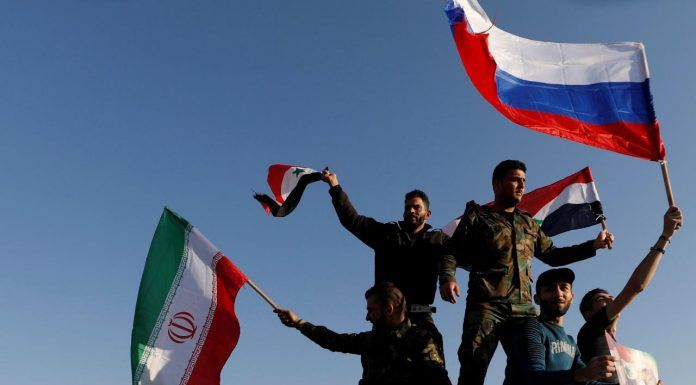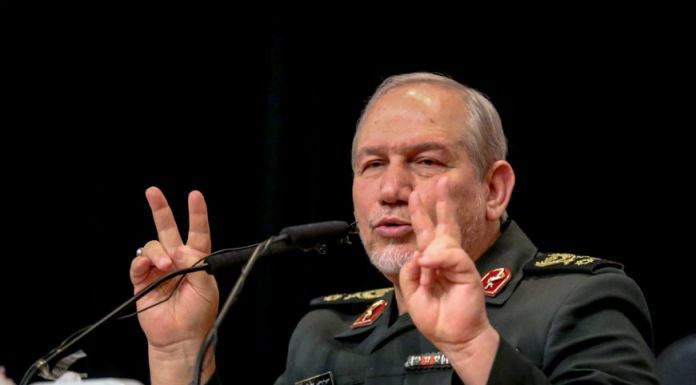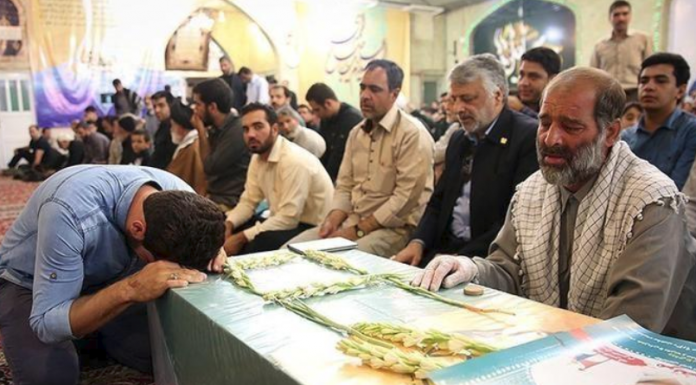9 Jan – Major-General Yahya Rahim Safavi, a senior military adviser to Iran’s Supreme Leader Ayatollah Ali Khamenei, said on January 9 that “one the most challenging issues facing the U.S. is the increasing global appeal of the Islamic Revolution.”
General Safavi, a former commander of the Islamic Revolutionary Guards Corps (IRGC), made the remarks during a speech at the 2nd National Congress of the Guardians of the Revolution and Sacred Defense (Iran-Iraq War 1980-88) in Tehran.
“The Islamic Revolution serves as a successful model for resisting liberal political ideology,” Mr. Safavi declared. “We have defeated the U.S. and its allies in Iraq and Syria.”
IRGC spokesman Brigadier-General Ramezan Sharif recently said that the U.S. had failed to achieve anything in Syria and Iraq, despite spending billions of dollars in those countries. However, General Safavi is the first senior official in the Islamic Republic who has publicly declared victory in Syria.
In a thinly veiled criticism of the government, Safavi asked: “Have our senior officials taken full advantage of these victories? Has our foreign policy been effective on the world stage? We are the regional superpower. The U.S. must acknowledge this fact. China is gradually replacing the U.S. as a global superpower.”
The Syrian military campaign has cost Iran more than $16 billion since 2012. Unconfirmed reports put the number of soldiers killed in Syria, including Afghan and Pakistani Shia troops, at 6,000. Safavi had previously said that Syria must compensate Iran for the cost of the War.
“Despite the massive military and financial investment, Iran and Russia are both winners in Syria. Moscow has signed a 49-year economic and trade agreement with Damascus and maintains a naval facility [at Tartus on the Mediterranean coast,]” Safavi noted. “In my view, Iran could also sign a long-term economic and trade agreement with Syria to recover the military expenditure in that country. Iran is currently benefiting from the Syrian phosphate mines.”
The presence of the IRGC in Syria was one of the reasons for the U.S. withdrawal from the Joint Comprehensive Plan of Action (JCPOA) and for the re-imposition of sanctions that have crippled the Iranian economy. Gulf states would not allow Syria to fall into Iranian hands even if Bashar al-Assad were to remain in power, so on January 8, they moved to readmit Syria into the Arab League.
Mohammad Javad Jamali, a member of the Majlis (Iranian Parliament) National Security and Foreign Policy Committee, said: “Readmitting Syria into the Arab League gives the Gulf states an excuse to meddle in the political and economic affairs of Syria.”
Meanwhile, the U.S. and Israeli military have prevented the IRGC forces and Shia militia units to achieve their objectives in Syria. Israeli Air Force has carried out more than 200 bombing raids against the IRGC positions in Syria near the Golan Heights in 2018. Syria has proven to be a political and economic quicksand for the Iranian regime.
Hossein Alizadeh, the former diplomat in charge of Middle Eastern affairs at the Islamic Republic Embassy in Finland, told the Turkish Anatolia news agency (AA) in April of last year: “Iran has been fighting tooth and nail to keep Bashar al-Assad in power. Meanwhile, Tehran has lost the support of dozen Arab and Muslim countries. The harder Iran struggles, the faster it sinks into the Syrian political, military and economic quicksand.”
Translated from Persian by Fardine Hamidi




